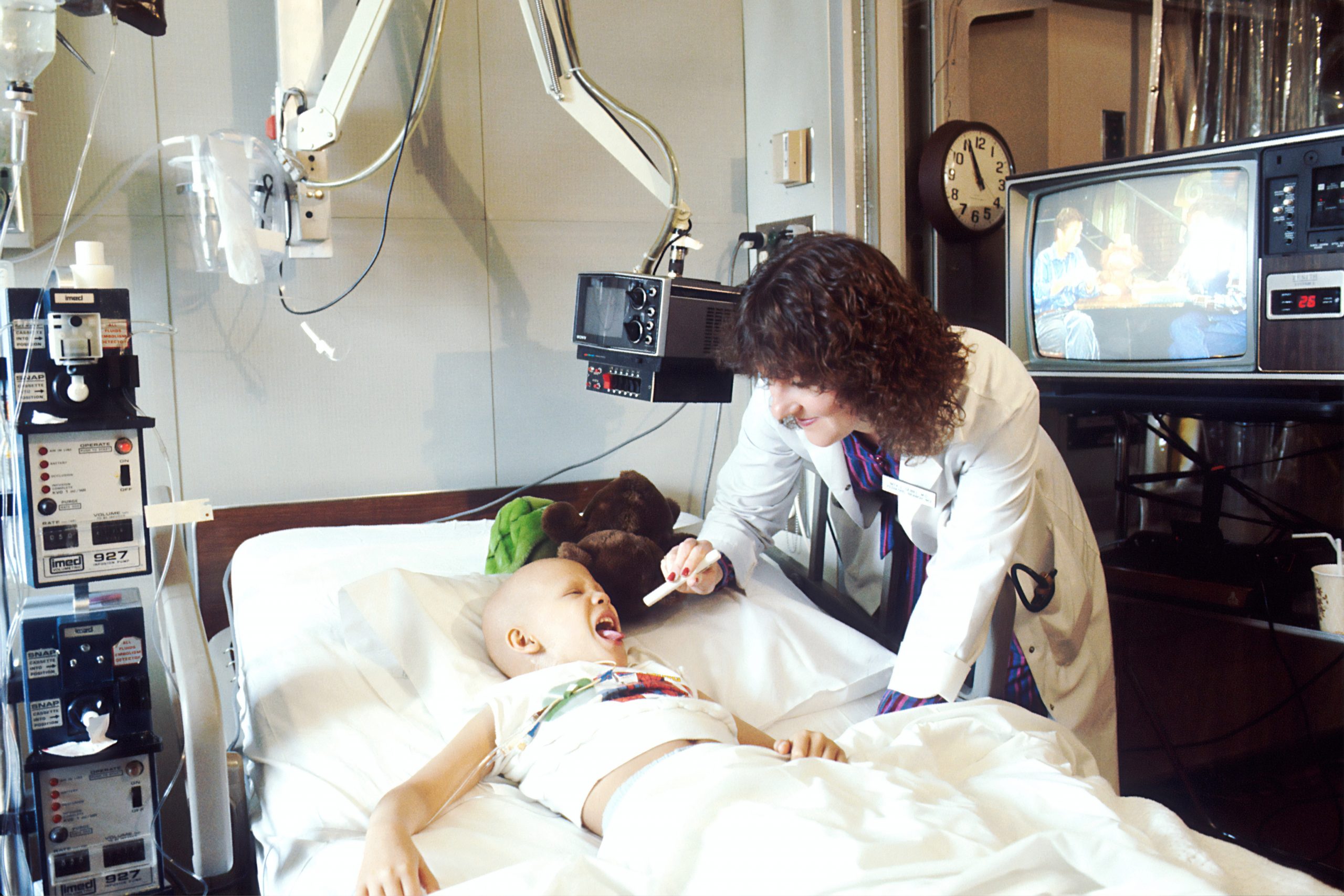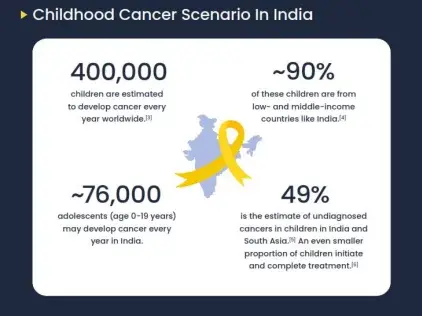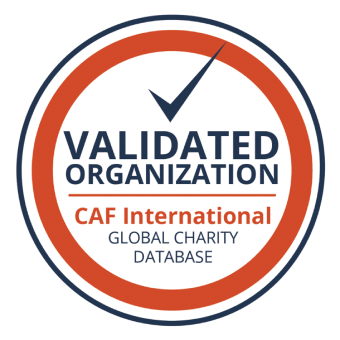When five-year-old Swara (name changed) was diagnosed with cancer, her family moved to a rented apartment in Pune from Baramati for her treatment. Her father had spent all of his savings on her medical tests and travel. She weighed less than what she was supposed to at her age and consumed only 23% of her energy requirements. She also experienced the side-effects of chemotherapy, including loss of appetite..
Approximately 50,000 children like Swara are diagnosed with cancer every year in India, that’s about one child every 11 minutes. Unfortunately, childhood cancer cannot be prevented or detected through regular screening, but generic medicine and therapy, including chemotherapy and radiation, can cure most childhood cancers. Yet, in low- and middle-income countries, like India, only an estimated 15-45% of children are cured of cancer compared to more than 80% in high-income countries. The critical reasons for the vast difference are many, including delayed diagnosis and inaccessibility to holistic and supportive care.
Another major hurdle that children with cancer face is the lack of access to proper nutrition. Approximately 40% are malnourished at the time of diagnosis. This puts these children at a greater risk of infection, side-effects, complications and treatment delays. The causes of malnutrition in children with cancers are multifactorial and dynamic in nature. The side-effects of treatment, complex metabolic disturbances, and changes in the inflammatory and hormonal system trigger alterations in the body. These effects are very often exacerbated by poor appetite, vomiting and nausea that hinder adequate food intake and further compromise the nutritional status. All of these factors result in a loss of adipose tissue and muscle mass resulting in malnutrition.
Beating childhood cancer starts with eating well.
Nutrition plays an undeniably crucial role in the body’s ability to fight cancer and can often be the difference between life and death. Currently, the five-year net survival rate for childhood cancers in India is 30-40%. However, the survival rate when holistic treatment is provided, including nutrition, goes up to 70%. Proper nutrition during cancer treatment reduces side-effects and treatment complications, results in fewer breaks or delays in treatment, improves chances for survival, and provides better immunity against infection.
In 2020-2021, Cuddles Foundation, an organisation that runs a nutrition programme for children with cancer, assessed the state of childhood cancer in India and analysed the impact of good nutrition. The report highlights the crucial role nutrition plays in getting children fighting cancer closer to a cure. Some of the key findings from the report include:
The top 4 prevalent childhood cancers:
- Acute Lymphoblastic Leukaemia
- Precursor B-Lymphoblastic Leukaemia
- B-cell Acute Lymphoblastic Leukaemia
- Acute Myeloid Leukaemia
34% of girls were diagnosed as against 66% boys.
This seems to resonate with the ratio of cancer diagnosis among boys and girls in India. This gender imbalance is largely seen in poorer countries where girls are less likely than boys to be referred to a doctor when they fall ill.
80% of caregivers do not know the proper foods to feed their child when they first receive the cancer diagnosis.
Considering that a large majority of the foundation’s beneficiaries earn less than ₹10,000 per month, distribution of nutrition aid is essential. On average, the nutrition programmes add ₹3,200 as savings to the caregiver’s income per month.
Impact of nutrition on children with cancer
- Despite cancer therapy like chemotherapy and radiation, 80% of patients improved or maintained their nutritional status.
- Also, 94% of patients counselled returned for a second visit or continued treatment.
- Average BMI z-score between first and last visits improved by 16%, indicating an overall improvement in health
This report highlights the urgent need for good nutrition for children battling cancer in India in the light of prevailing malnutrition rates and treatment-induced side-effects. Several studies indicate that children face a lower risk of infections, fewer treatment delays, reduced side-effects and recover more quickly with adequate nutrition., The Foundation’s clinical assessment of its 6,000+ patients through this report is further evidence for the need for nutritional counselling and food aid at paediatric cancer hospitals across the country.
The study can be accessed here
Link for the Original article here
Published by: Hindustan Times
on November 8, 2021





